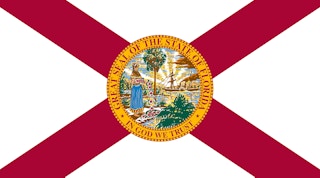Cookies in use
BREAKING: Gov. DeSantis Proposes Expansion of 'Don't Say LGBTQ+’ Law to All Grades, Targeting LGBTQ+ Youth and Turning Back the Clock on Equality
by HRC Staff •

Tallahassee, Florida – The Human Rights Campaign (HRC) — the nation’s largest lesbian, gay, bisexual, transgender and queer (LGBTQ+) civil rights organization — condemns Gov. Ron DeSantis’ proposal to expand his shameful “Don’t Say LGBTQ+” bill to all grades, which targets LGBTQ+ youth, parents and educators across the state by banning educators from talking about LGBTQ+ issues or people.
The proposal will block teachers from providing safe, inclusive classrooms, further stigmatizing LGBTQ+ people and isolating LGBTQ+ kids.
The proposal, which would not require legislative approval, is scheduled for a vote next month before the state Board of Education and has been put forth by the state Education Department, both of which are led by appointees of the governor. The rule change would ban lessons on sexual orientation and gender identity from fourth to twelfth grade unless required by state standards or as part of a reproductive health course that parents can opt students out of. DeSantis’ initial law, passed last year, bans those lessons in kindergarten through third grade.
Governor DeSantis’ ‘Don’t Say LGBTQ+’ law is a shameful attack on students already struggling with the weight of discrimination. It is a slapdash, mean-spirited, impossible-to-comply-with law designed to make LGBTQ+ students feel shame and isolation at school, a place where every child deserves a chance to learn and succeed. There’s nothing inappropriate about being LGBTQ+ and there are plenty of age-appropriate ways to acknowledge and discuss LGBTQ+ kids, staff, and family members. Teachers are experts in providing information in an age appropriate way - DeSantis is simply reviving vintage ‘Save Our Children’ discrimination to make a political name for himself.
DeSantis is an existential threat to every LGBTQ+ person in Florida, and his attacks are having a growing impact nationwide. Since DeSantis signed his ‘Don’t Say LGBTQ+’ law last year, we’ve seen shameful efforts to replicate the law in other states by extremist legislators who are trying to rile up a small but radical base. DeSantis has made clear that demonizing LGBTQ+ people will be the center of his legislative agenda and likely presidential run. The country is tired of watching him use the lives of LGBTQ+ children for personal political power. The Human Rights Campaign strongly condemns these discriminatory policies and will continue fighting for Floridians who deserve to exist freely and proudly.”
LGBTQ+ Floridians are more than twice as likely to experience depression or anxiety compared to non-LGBT Floridians. According to the Public Opinion Research Lab (PORL) at the University of North Florida, 49% of Floridians oppose the legislation while only 40% support it. Opposition for the bill is even stronger in younger populations. A majority of Floridians between the ages of 18 and 24 — recent secondary school graduates — disapprove of efforts to erase LGBTQ+ people in classrooms.
Findings from the GLSEN 2021 National School Climate Survey demonstrate that Florida schools were already not safe for most LGBTQ+ secondary school students. Most LGBTQ+ students in Florida experienced anti-LGBTQ+ victimization at school. Only 11% of LGBTQ+ students in Florida were taught any positive representations of LGBTQ+ people, history, or events.
So far in 2023, HRC is tracking more than 420 anti-LGBTQ+ bills that have been introduced in statehouses across the country. Approximately 180 of those bills would specifically restrict the rights of transgender people, the highest number of bills targeting transgender people in a single year to date.
This year, HRC is tracking:
More than 100 bills that would prevent trans youth from being able to access age-appropriate, medically-necessary, best-practice health care; five have already become law, in Arkansas, Tennessee, Mississippi, South Dakota, and Utah,
More bathroom ban bills filed than in any previous year,
More than 80 curriculum censorship bills and 35 anti-drag performance bills.
In a coordinated push led by national anti-LGBTQ+ groups, which deployed vintage discriminatory tropes, politicians in statehouses across the country introduced 315 discriminatory anti-LGBTQ+ bills in 2022 and 29 passed into law. Despite this, fewer than 10% of these efforts succeeded. The majority of the discriminatory bills – 149 bills – targeted the transgender and non-binary community, with the majority targeting children receiving the brunt of discriminatory legislation. By the end of the 2022 legislative session, a record 17 bills attacking transgender and non-binary children passed into law.
Anti-LGBTQ+ legislation in 2022 took several forms, including:
80 bills aimed to prevent transgender youth from playing school sports consistent with their gender identity. 19 states now exclude transgender athletes in school sports.
42 bills to prevent transgender and non-binary youth from receiving life-saving, medically-necessary gender-affirming healthcare. 5 states now restrict access to gender-affirming care.
70 curriculum censorship bills tried to turn back the clock and restrict teachers from discussing LGBTQ+ issues and other marginalized communities in their classrooms. 7 passed into law.
The Human Rights Campaign is America’s largest civil rights organization working to achieve equality for lesbian, gay, bisexual, transgender and queer people. HRC envisions a world where LGBTQ+ people are embraced as full members of society at home, at work and in every community.
Contact Us
To make a general inquiry, please visit our contact page. Members of the media can reach our press office at: (202) 572-8968 or email press@hrc.org.
Love conquers hate.
Image: